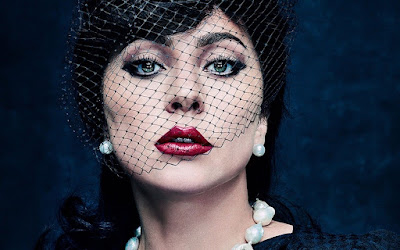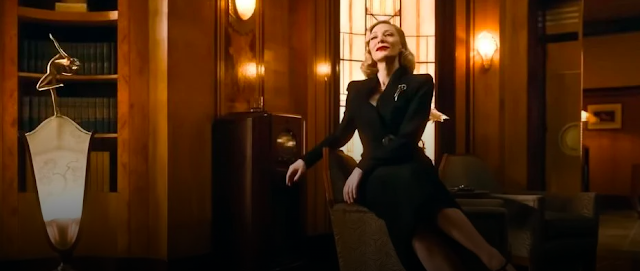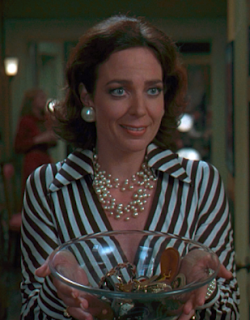12 Favorite Films of 2021 -- An Impossible Countdown
I have watched over 50 films released in 2021. It's a pandemic. These were my 12 favorite--an impossible list to make and rank, given this was the best year for movies since 2017. I did my best!
12. The Last Duel (Oscar nominations: none)
Rotten Tomatoes split: 85% Critics/ 81% Audiences
I love watching Ben Affleck *act*, and in The Last Duel (like in the lovely, flawed The Tender Bar), he gets to ACT. The three separate perspectives are written and performed with wonderful attention to detail. Jodie Comer is fantastic. Harriet Walter is perfectly cast, and I could watch her retire for the evening over and over again. One reason *this* film barely makes this list, in a year of very strong films, is that I was even exhilarated by the final title duel, instead of repelled as I had expected. For me to be engaged in a cinematic battle—that takes skill. Ridley Scott—you made it this one work. And it’s nice to see Matt and Ben writing again, and with the taste to invite *Nicole Holofcener* to write Jodie’s perspective.
11. Nightmare Alley (Oscar nominations: (4) Best Picture,
Production Design, Cinematography, Costume)
Rotten Tomatoes split: 80% Critics/68% Audiences
The Shape of Water was not my favorite film in the extraordinary
film year of 2017, but it was wonderful enough that I was far from disappointed
by its win. Nightmare Alley is not in the same league as The Shape of
Water, and yet there is always something about a del Toro work that stays
with me and the structurally flawed Alley is similarly full of dark
delights. There were so many erotic chef’s kisses in film this year (Oscar Isaac’s
death scene in Dune; Edgerton, Vikander, and Patel’s magic queer lust
triangle in Green Knight, Cumberbatch privately exploring his sensuality
in Dog, the entirety of West Side Story), but Toni Collette as a cynical medium getting
Bradley Cooper naked and cornered in her tub for Talented Mr. Ripley
games was probably the one that was most directly aimed at *me,* and I always
appreciate being seen (People are desperate
to be seen…).
Beyond Cooper’s very artistic and tasteful reveal of skin (a
triumphant contribution to cinema, Bradley, you must agree to it again!) there
was his beautifully sinister performance. The way his acting and the film slowly (slowly!)
revealed the depths of his mendaciousness, brilliantly preparing us for his inevitable
but still surprising fate, reeled me in completely, and it is rare that a
leading man performance can do that (he or Patel obviously deserve Bardem’s
place in the Lead Actor nominations). Additionally, David Strathairn’s
supporting turn as the alcoholic Pete is brilliant. And of course Cate Blanchett—the
comic jewel of the otherwise flailing Don’t Look Up—is ravishing as the
amoral Dr. Lilith Ritter, in a performance that somehow melds with the stunning
art deco production and costume design, as if she were part of the set come to
life. Her last raspy gasp of a line, “I’ll live” – is an iconic, ironic summation of
the neo-noir genre.
10. The House of Gucci (Oscar nominations: (1)
Makeup/Hair Styling)
Rotten Tomatoes split: 63% Critics/83% Audiences
9. Wheel of Fortune and Fantasy (Oscar nominations: None)
Rotten Tomatoes split: 99% Critics/--% Audiences
It’s been, famously, Ryûsuke Hamaguchi’s *other* 2021 slow
burn film—Drive My Car—that has caught fire in the Oscar race, even nominated
for Picture and Director. I am a patient viewer when entranced, but even I
found the proudly pretentious, intelligent, grief-soaked Car a far longer ride
than I could truly enjoy—he has some wonderful cinematic touches, but I think I'd have preferred the short story.
But Wheel—this movie has magic. Hamaguchi’s trademark, to me, are his
long sequences of close-up dialogue and monologues, almost like a play but
still viscerally cinematic, where characters dance around before diving into
very deep feelings & existential questions while constrained by social
contexts and happenstance and professional & relationship roles. The
emotional climax in the third story-act of Wheel was one of the greatest
emotional releases I had all year. I am a dead husk of a human, the world has
brought me to this numb and shriveled place, and my ducts can barely create
tears anymore—but my, they gushed for this one. I loved it. I simply loved
other films more.
8. The Worst Person in the World (Oscar nominations: (2) International
Feature & Original Screenplay)
Rotten Tomatoes split: 96% Critics/86% Audiences
Joachim Trier makes a bet that Renate Reinsve can shoulder
the superlative promise of the title and still carry us along with her to the end, and this bet
pays off. Reinsve—who should have Kidman or Chastain’s Oscar slots--could take
us anywhere. To give detail: the role, partially about being vaguely
dissatisfied, could easily result in a muddled performance—but she remains
*specific* and in the moment with clear choices and it is utterly captivating. Anders
Danielsen Lie, the focus of the director’s Oslo trilogy which this film
concludes, is excellent as well, and while he is not part of the truly immortal
sequence in this film, when Reinsve crashes a party and has an erotically
charged borderline adulterous flirtation with an attractive barista, his
offscreen presence fuels its fire. Indeed, no matter how many claim changing norms means adultery is no longer the great subject of fiction it once was, I say bunk: there wasn’t anything more erotically exhilarating on
screen last year than “Chapter 2: Cheating” of The Worst Person in the World.
7. Licorice Pizza (Oscar Nominations: (3) Best Picture,
Original Screenplay, Best Director)
Rotten Tomatoes split: 90% Critics/65% Audiences
I trusted Paul Thomas Anderson’s camera, and I was along for the ride. It’s like floating through an ocean current, from scene to scene, coming across strange and fantastic sea creatures in close-up like Harriet Samsom Harris and Sean Penn and Bradley Cooper and Christine Ebersole and Leonardo DiCaprio’s dad. Cooper Hoffman and Alana Haim were wonderful, and the running, running, running just worked with the theme of flow. Anderson is, along with Spielberg, my favorite working director, but I will admit there were some diminishing returns in some of his go-to subjects in Pizza, a few uneven seams, the badly conceived fake Asian accent joke being just the most glaring example. Yet the flaws, ultimately, highlight the beauty. Anderson is human, after all.
6. The Power of the Dog (Oscar Nominations: (12) Picture,
Actor, Director, Sup Actor, Sup Actor, Sup Actress, Adapted Screenplay,
Cinematography, Score, Production Design, Editing, Sound)
Rotten Tomatoes split: 94% Critics/77% Audiences
5. The Green Knight (Oscar Nominations: NONE)
Rotten Tomatoes split: 89% Critics/50% Audiences
There is no sexier actor working today than Dev Patel, and it is a testament to his sheer erotic power that the second sexiest actor of our time was poetically splayed naked & taut in Dune and yet it is Patel who still reigns Supreme. After I saw The Green Knight the first time, it was my favorite film of the year and I thought Patel deserved a nomination for best actor. I still think he deserved it, like Reinsve it’s a potentially vague/muddled role that he imbues with subtle shades of meaning and fine-line walking between precisely different qualities. The film’s fifth position on this list is simply a testament to the sheer number of great films this year.
All of the performances here are darkly enchanted—I particularly loved Sean Harris
as the King, Kate Dickie as the Queen, and Barry Keoghan as the Scavenger. Director
David Lowery magnificently incorporates tasteful visual effects (the cliffside
scene of the walking giants simply astonishes) and pulls off long shots (like
the skeleton reveal 360) that may be indulgent, but absolutely work. This, much
like Spencer, is a dark royal fantasy with deep resonances and
fascinating themes: on the nature of bravery, the fear of death, and the
meaning of life and lust and love. The ending sequence—a surreal fast-forward “Occurrence
at Owl Creek Bridge” fantasia reminiscent of Lowery’s A Ghost Story—is
an enrapturing masterpiece, one of the several sequences from this year I will
never forget.
4. West Side Story (Oscar nominations: (7) Picture, Sup
Actress, Director, Cinematography, Production Design, Costume, Sound)
Rotten Tomatoes split: 91% Critics/94% Audiences
For all the complaints about Ansel Elgort, it seemed to me that the very visual Spielberg cast Zegler for her eyes and Elgort for his lips. Not since Brando and Jolie have lips made such an impression on me, to the point that I did not much mind the mediocre performance that came out of them.
While the snubbed Mike Faist makes a meal of his role, and the legendary Rita Moreno stuns with her pitch perfect reinvention of “Somewhere,” and the likely Oscar winner Ariana DeBose deploys all her dancing and emotive skill on screen, and Tony Kushner’s snubbed screenplay tickles—this is Spielberg’s sumptuous masterpiece. Alongside cinematographer Janusz Kamiński, Spielberg bathes us in light and color and eyes and shadows—famously at one point plopping us in a sparklingly gorgeous *puddle*--and the result is one of the most elegantly cinematic musicals I have ever seen, surpassing, in my opinion, the original West Side Story. The gymnasium sequence in particular is ET-bikes-before-the-moon magical, the perfect & precise execution of an incredible vision, something most others would never even attempt let alone pull off. When Tony and Maria are behind the bleachers, falling in young love, we all fall in love again, together. This film, where Spielberg rivals Shakespeare himself as the greatest teller of this timeless tragic tale, is my vote of the nominees for Best Picture. And for a story that reportedly began with an idea of Montgomery Clift’s on Fire Island, this Tony Kushner adaptation remains incredibly *queer* (down to the casting!) without an accompanying *queer problem.* We are lucky beyond words to be alive (for now) for Spielberg’s magnificent golden years. This is what happens when a master of the craft accomplishes a lifelong dream.
3. Mass (Oscar Nominations: NONE)
Rotten Tomatoes split: 95% Critics/91% Audiences
There is perhaps no greater Oscar snub this year than the
Academy completely ignoring Fran Kranz’s instant classic directorial debut,
about the parents of a school shooting victim (Martha Plimpton and Jason Isaacs)
meeting with the parents of the perpetrator (Ann Dowd and Reed Birney) and stumbling
toward perhaps the greatest human mystery of all: forgiveness.
While this appears, at first, to be a filmed play, it isn’t.
It is the cinema of faces, of subtle and intense flashes of emotion, of the
unspeakable communicated in other ways—light, touch, music, and involuntary
shivers. Perhaps you find astrology ridiculous, but I find it a fascinating
system of meaning-making, and in Mass the July-born Cancer Kranz has
made the ultimate Cancer movie: about two families experiencing some of the
most painful family-destroying emotions imaginable, and using all the emotional
tools in their box to delay direct conflict as long as possible, and then using
all the rest to wage all out war once it comes--from self-pity to manipulation
to grand outbursts of anger and tears. And only then, when the pincers have
pierced all the shells and everyone is reduced to an exhausted, exposed
crustacean at one another’s mercy, does mercy somehow find an opening.
Everyone contributed to this triumph, but the women are the
core, and Ann Dowd and Martha Plimpton both deserved Oscars for the greatest performances
of the year. Had the church choir ending been slightly less cliché, this could
be my number one.
2. The Lost Daughter (Oscar Nominations: (3) Actress, Sup
Actress, Adapted Screenplay)
Rotten Tomatoes split: 95% Critics/48% Audiences
Despite widespread critical praise for Maggie Gyllenhaal’s
directorial debut, many, many viewers did not like The Lost Daughter. “Difficult
to follow” said some, “dull” said others, but ultimately I think Gyllenhaal—adapting
a the novel by Elena Ferrante—was punished for following the ultimate John Waters
credo: she disturbed. Looking under the rug of the idea of a mother’s supposed unconditional
love is one of the ultimate taboos, and the masterclass performances of both Jessie
Buckley and Olivia Colman as the doll-swiping, daughter-abandoning Leda likely
prodded some people toward fears in the back of their mind most would rather
not tread—about themselves, or their own memories of Mother.
There are inspired moments galore, many involving silence
and inscrutability: from Ed Harris coming across the stolen doll and saying
nothing, to the pulsating presence and voice of Dakota Johnson, to Olivia
Colman simply sitting on a beach with a book, a flawed, brilliant woman practicing
small acts of resistance in a predatory nightmare world.
Like for The Hours with its similar themes of maternal abandonment,
there have been sharp
critiques of the decisions made in adapting the material, but I found the
film to be incredibly rich and completely captivating, and that is in large
part to Olivia (and Jessie’s) skill at conveying just enough flicker of thought
and emotion to allow us to imagine the monologue inside, even if we haven’t
read the reams of internal narration in the novel. The ambiguity of motive is
part of the point—we can never fully understand the decisions Leda makes. We
can, however, appreciate the context for it, and when she attempts to enjoy a
movie only to have it ruined by obnoxious teens, we recognize a world many of
us live in—one dominated by others: the loud, the mean, and the wrong. Where
most of us acquiesce to the aggressive—to keep the peace, to be agreeable—Leda,
unlike her mythological namesake, *asserts*. She is a hero, in the ancient
Greek sense, flawed and free, and I happily join her cult.
1. Spencer (Oscar Nominations: (1) Actress)
Rotten Tomatoes split: 83% Critics/52% Audiences
Since I first saw Spencer, it has reigned in my mind as the greatest of the year. Like The Lost Daughter, Gucci, and Worst Person, it’s central pillar is an extraordinarily risky triumph of a lead actress performance. Kristen Stewart--like Natalie Portman as Jackie before her--walks so close to the cliff's edge of ridiculous, logic tells us she should fall. But she flies. I have no idea how she does it.
Many who watch Spencer wonder what is true, and what is imagined. I think that is beside the point of this particular story, where we inhabit the mind of the mad prophet herself, and in a dark fairy tale we watch what happens when a woman launches love itself into a cold cursed castle, like a Molotov cocktail. The core scene, in which Diana bonds with her two boys, with Harry showing his mother's heart, and William already learning to wear the mask of his father's and grandmother's call to duty, is a heartbreaking masterpiece. The haunted horror sequences, featuring the motif comparing Diana to the fate of Anne Boleyn, are perhaps a tad on the nose, and yet, inhabit an eerie space between paranoia and potential truth. Every storytelling instinct about Diana wants us to find a reason, see a conspiracy, to locate even a poetic thread in which it was the Royal Family who somehow brought about her end. We will likely never fully know exactly what threads exist, or how poetic they may be. But myth endures regardless, and the idea that Diana "lost her head" like Anne Boleyn has resonance.
When Diana finally escapes the castle, driving away with her boys, exhilarated and temporarily free, to London Bridge, we may become aware of her strategy. The Queen may rule her chilly roost for now, but one day London Bridge will fall, and Diana's long game--her planting the seeds of Love in the cursed castle--will bloom their terrible blooms. Indeed, the son who has her heart has already begun the process.
Sally Hawkins is extraordinary as Maggie, the woman who shares Diana's open heart. Kristen Stewart gives the greatest, riskiest, most memorable nominated performance of the year in Spencer. Pablo Larrain bets the entire castle on her, and wins. Films like this--where we adopt the POV of a half-mad prophet or martyred saint--are not for everyone. But if you are on its wavelength, if--unlike the Royal Family at dinner--you see the pearls cast before you for what they are, by my lights there was no greater experience in a theater in 2021. This film blazes. Some decried it as the simplest of plots--Diana has a rough couple days with the in-laws she barely talks to-- but absolutely everything happens in it. Everything.
Honorable Shout-outs of the Year:
DUNE: Charlotte Rampling Torture Box, Naked Oscar Isaac Torture Pose
BEING THE RICARDOS: Inside Lucy’s Mind
RESPECT: Dinah Washington Table Flip
PIG: Cage's Real Talk with the Chef
THE EYES OF TAMMY FAYE: Battle Hymn of the Republic
THE TENDER BAR: Ben Affleck
LAST NIGHT IN SOHO: Meeting the Roommate
NO TIME TO DIE: Portrait of Judi Dench (highlight of the film)
TRAGEDY OF MAC: Oscar-snubbed performances of Alex Hassell and Kathryn Hunter
DON’T LOOK UP: Cate Blanchett
TICK TICK BOOM: Robin de Jesus (snubbed) & Bradley Whitford's Sondheim
BELFAST: This is a joke, there is nothing honorable about Belfast.
Thanks for reading!

























Comments
Post a Comment